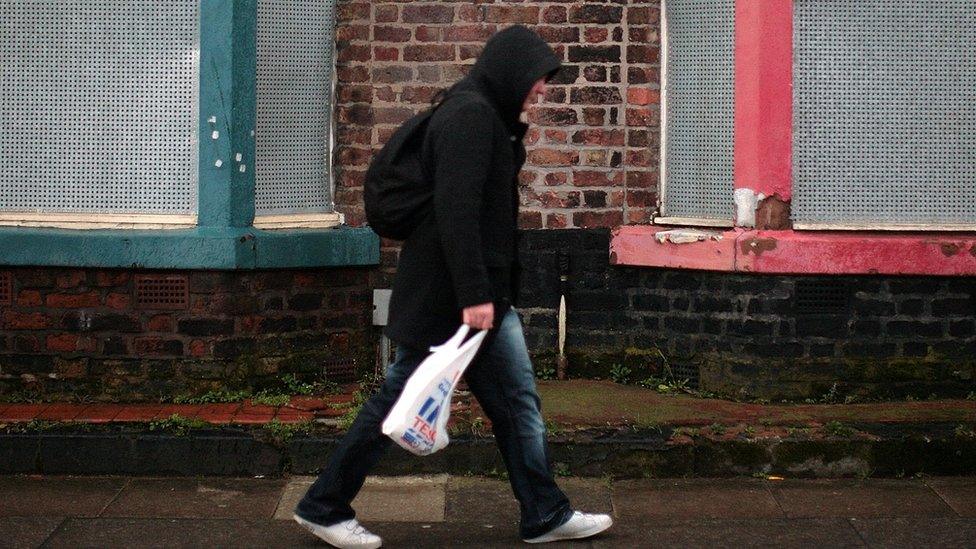Is the single life more expensive?
- Published
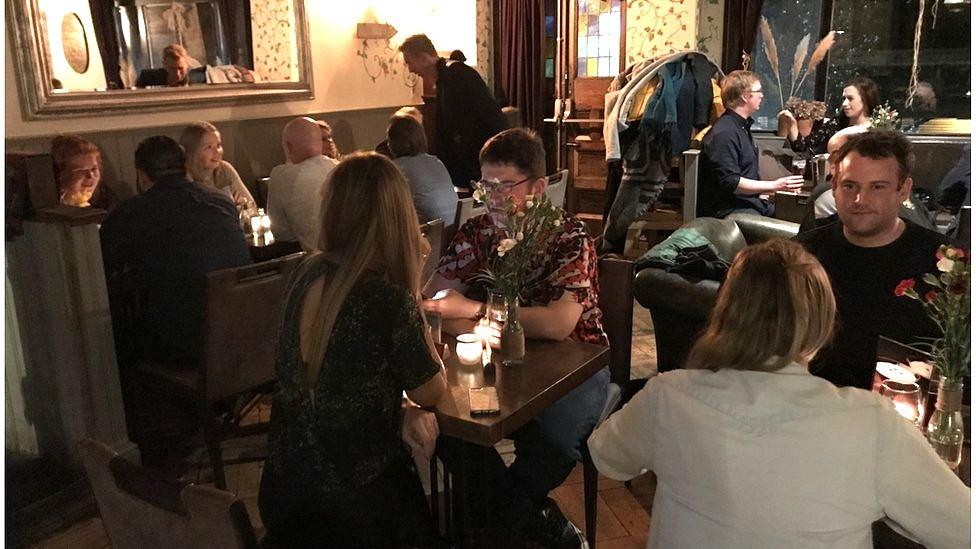
At a speed dating night in Hove, many said life as a singleton was more expensive.
Are you single, and suspect that life is more expensive for you than it is for your coupled-up friends?
Well you could be right. There are 7.7 million people living alone in the UK, and according to the Office for National Statistics, last year they each spent on average £21 a week more than individuals living as a couple.
There are all sorts of factors at play here, but a quick survey of single people looking for love at a speed-dating night in Hove, East Sussex, shows what bugs people the most.
"I live on my own and I have to pay a mortgage and all my bills by myself, I don't have anyone to split that with," says Emma, 29.
She says being single also affects her spending habits. "It's easier to stay in when you're part of a couple. When you're single you don't always want to stay in and be on your own, which means you go out more, which means more money."
'Kind of penalised'
Jeremy, 32, agrees that the burden of not sharing his rent and energy bills with anybody takes its toll. But it was when he went on a package holiday to Cuba that he really noticed - when he got charged the dreaded single supplement.
"Being a single person instead of a couple, you get kind of penalised. It gives you a little bit of an emotional, not burden, but it hurts a little bit."

At Cheetah's Gym, couples can pay £40 a month for membership but individuals pay £25.
Not everyone is so gloomy. One woman, 27, who's just come out of a long term relationship says she hasn't really noticed much difference.
"I think it's cheaper being single. I can spend my money on what I want to spend my money on!"
Research into the Living Wage by Loughborough University and the think tank Resolution Foundation has found that single people living alone have to earn £9.50 an hour, whereas a couple without kids would each need to earn £6.15 an hour, to attain the same "decent" standard of living. This is for the UK, excluding London.
Geared towards couples
Claire Walsh is a chartered financial planner at Aspect 8. She used to be married but is now single and lives alone in a flat in Hove.
"There's absolutely a difference financially to being single. It's not that you pay half of the costs that you did when you were in a couple. It's quite a bit more than that - I would estimate it's 80-90% of the costs for a single person.
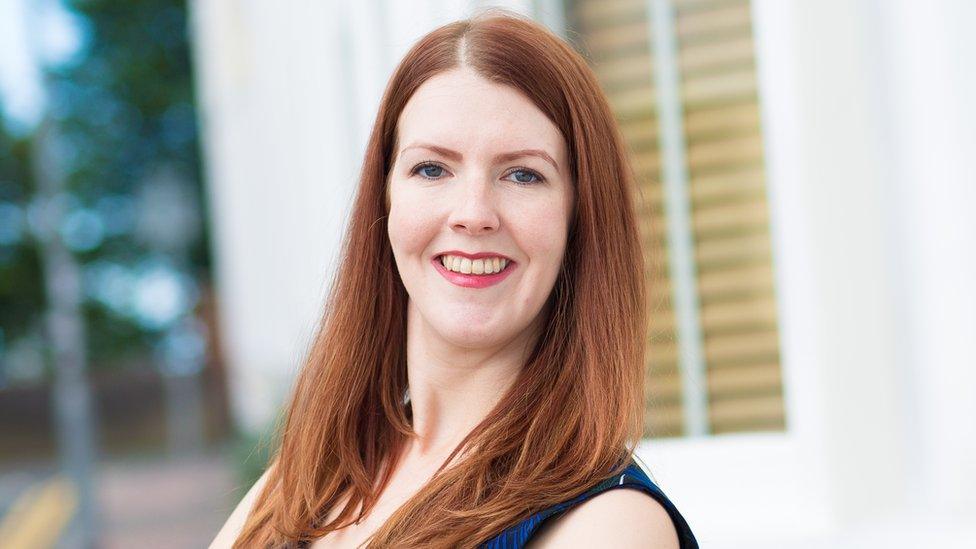
Claire Walsh says that being single is definitely more expensive than being part of a couple
"Obviously you've got your rent or mortgage but even things like utilities, you're not using half of that, you still need to heat and light your home."
People living alone do get a 25% discount on council tax, but Claire thinks that to be fair, the discount should be 50%.
It's not just the cost of running a household alone that stings. You could be one of the 18 million people in England and Wales who are not married and not living with a partner, but do live a world that's generally geared towards couples.
A simple shopping trip around Hove shows what things can be cheaper when you purchase as part of a couple.
Take Cheetah's gym, for example. A membership there is £25 a month when paid for by direct debit. Two people paying from the same bank account pay £40 a month, a discount of £5 each.
Cheaper holidays
At Holiday Time travel agency, on the High Street, an all-inclusive holiday to Corfu in Greece in September costs £2,180, which is £1,090 per person. A solo traveller would have to pay £1,400 for the same holiday.
Joseph Ibrahim, the founder of the travel agency, explains the price difference. "There's quite a lot involved in maintaining the room, from cleaning, laundry, heating, electricity, so the hotel will say they still need to charge for maintaining the room."
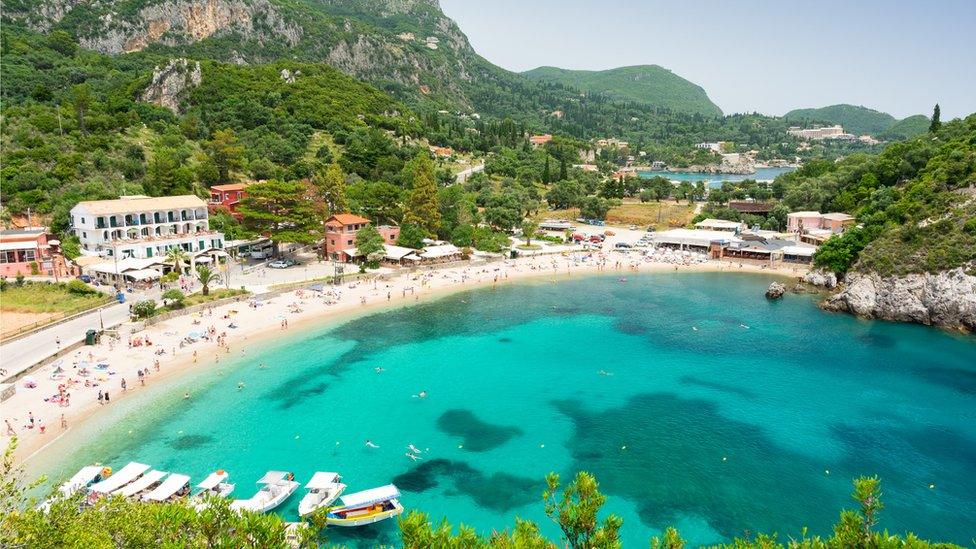
For a couple, an all-inclusive holiday to Corfu in September costs £2,180, which is £1,090 per person. A solo traveller would have to pay £1,400.
On top of this, hotels assume that a couple will spend more money at the restaurant, bar, and spa, so they charge single travellers more to make up for that amount of money they're not going to spend.
Travel costs can be more expensive too if you are single. An outbound flight to Corfu for the first Sunday of September, booked through the Easyjet website, costs £54.40 when bought individually. But when I buy two tickets together, the price goes down to £46.90 per ticket.
Easyjet says there's a price difference because budget airlines are forced to include administration fees in their advertised prices. So if you're booking one ticket, you have to pay the whole admin fee yourself, while booking two or more tickets spreads the cost.

Joseph Ibrahim says hotels assume couples will spend more money at the restaurant, bar, and spa, so charge single travellers more to make up for that.
Also, buying car insurance through a price comparison website, I can save more than £100 if I'm married, and put my husband as a second driver, compared to if I'm single. That's because insurance claims history suggests that people who are settled down with a partner drive, on average, in a more prudent fashion, than people who aren't.
Economies of scale
And adding the spouse as a second driver lowers the premium by spreading the risk. That's the theory anyway.
Adding it all up - as a couple it would cost me £1,836.90 for a holiday, a flight, car insurance and a month's gym membership. But as a single person I'd pay £2,258.40 for the same things. That's a difference of £421.50.
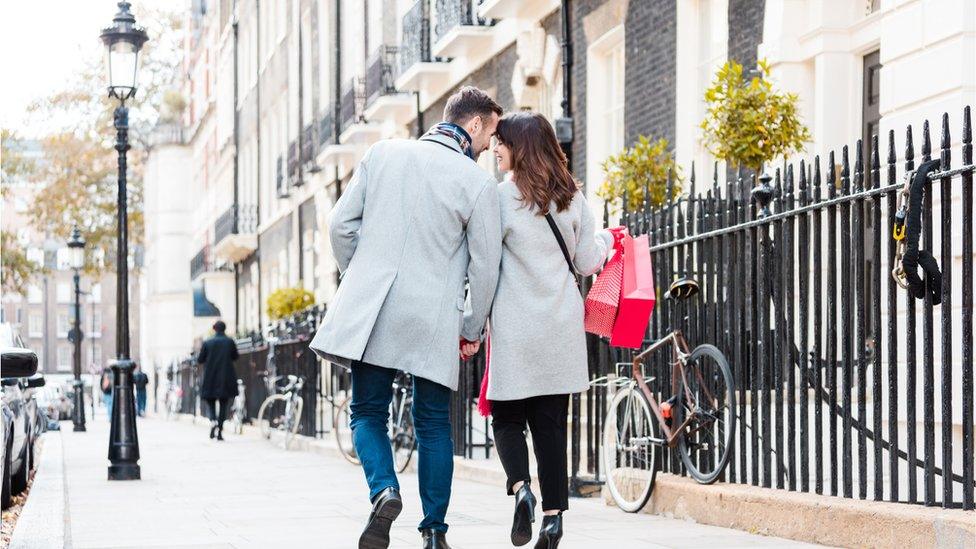
A lot of cost savings made as couple can be put down to economies of scale
A lot of cost savings made as couple can be put down to economies of scale, and you don't have to be romantically involved with a second person to both take advantage of couples' savings.
However there are a number of tax breaks and financial benefits that favour couples if they are married.
First is the marriage tax allowance. If one partner is a base-rate tax payer and the other is earning less than £11,500, the lower earner can transfer £1,150 of their Personal Allowance to their husband, wife or civil partner, saving them up to £230 a year.
Inheritances between spouses are completely free from inheritance tax, but if you are leaving your money to anyone else, then inheritance is taxed at 40% above £325,000. In addition, a surviving partner can inherit their deceased spouse's tax free band, so when the second spouse dies, their children can inherit £650,000 tax-free.
Finally, there are final salary pensions. A spouse's pension death benefits can be a very lucrative income stream, but generally you can't make a provision for anybody else like your brother or your children.
"I do take more of an issue with things like the tax breaks, like the marriage allowance, which is very much a social construct from the government," says Claire Walsh. "I think that as a society we do need to be evolving a bit more and treating everyone equally."
That said, the Institute for Fiscal Studies points out that overall, benefits and tax credits can be seen to penalise couples, because they are means-tested based on a couples' joint income. So two people can often get more state support if they live separately than if they live as a couple.
Hear more on Money Box, BBC Radio 4, Saturday 17 March at 12:00.
- Published17 January 2018
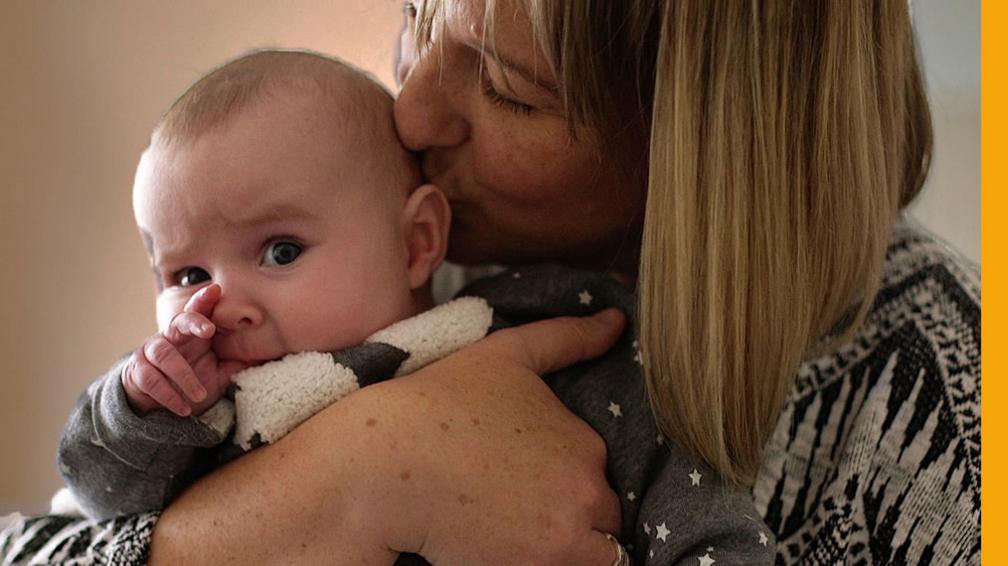
- Published11 August 2017
